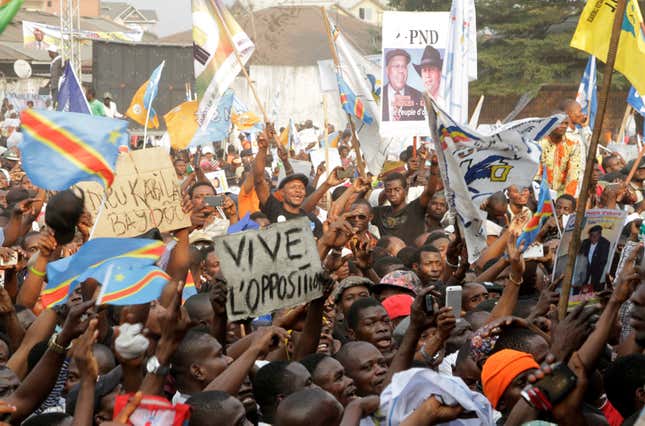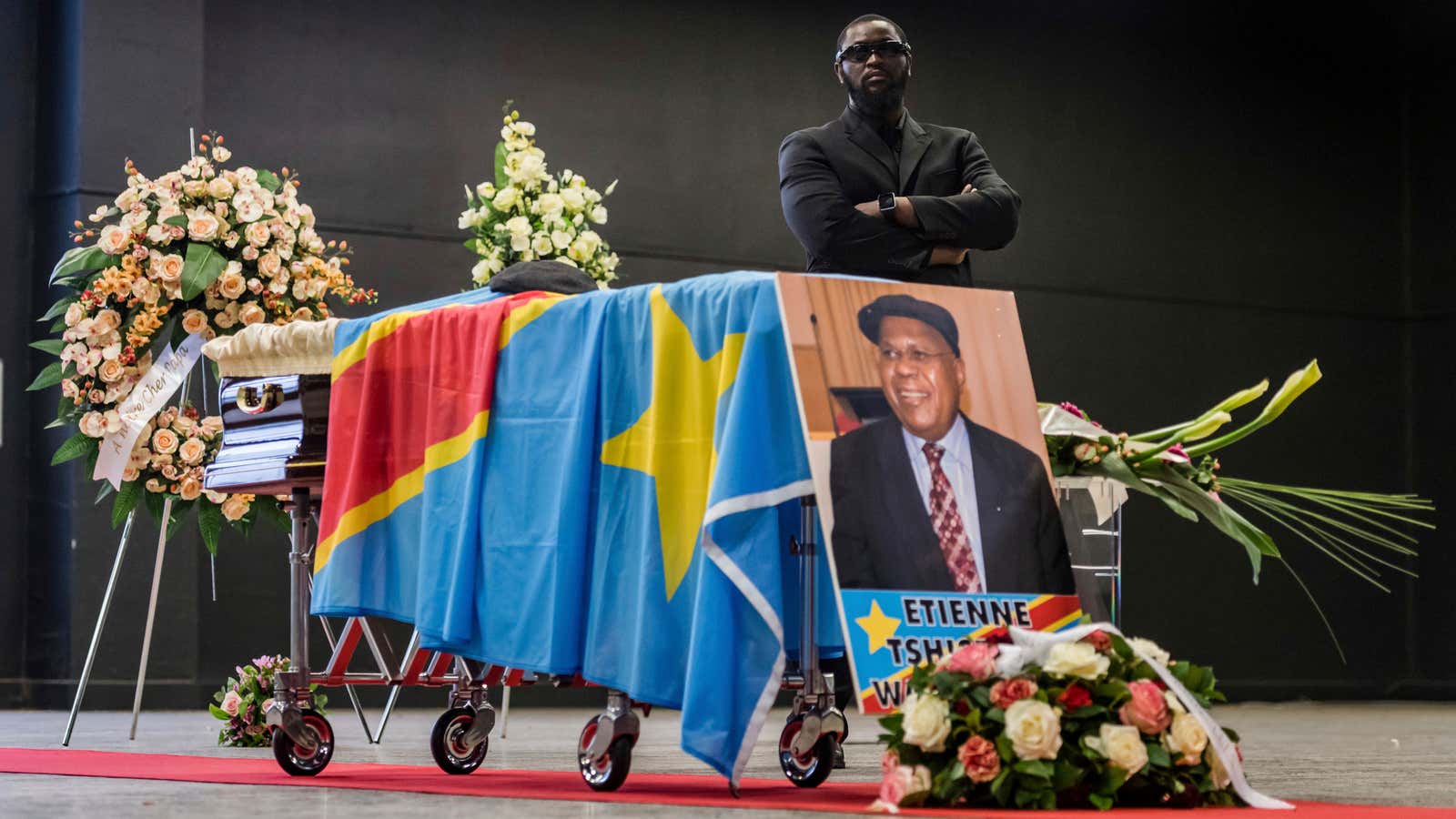Lubumbashi, DR Congo
Etienne Tshisekedi’s corpse has languished in a Brussels morgue for months now, his beloved Congo now permanently beyond his reach.
Tshisekedi, arguably the Democratic Republic of Congo’s most tenacious opposition leader, died on February 1 at the age of 84. Months later, his body has yet to be repatriated from Belgium to the country for which he fought so long. Congolese authorities seem determined to ensure that Tshisekedi’s funeral does not become his final act of defiance.
The Union for Democracy and Social Progress want their veteran leader buried in a mausoleum at the party’s headquarters in Kinshasa. Congolese officials, however, have refused this, citing a colonial-era law that prohibits burial in residential areas over public health concerns, going as far as to interrogate the mausoleum’s architect. Kinshasa authorities want Tshisekedi to be interred in a cemetery like everyone else, and they want to control the funeral proceedings.
In a tense political climate, Tshisekedi’s funeral may become a mass demonstration against president Joseph Kabila, who failed to step down when his mandate ended in December. When the November elections were indefinitely postponed, deadly protests erupted around the country. At the time of his death, Tshisekedi was head of the “Rassemblement,” a coalition of opposition parties determined to ensure that elections will take place in 2017. Many believe Tshisekedi would finally have won the presidency, his goal for four decades.
If Tshisekedi is buried in the capital, Kabila’s fiercest rival Moise Katumbi has vowed to return from his own political exile to attend the funeral. Popular among the youth, Katumbi’s presence in Kinshasa is likely to draw even more politically frustrated mourners.

Tshisekedi’s previous return to Kinshasa was a political triumph. After two years abroad for medical treatment and political recuperation, he returned in July 2016 to a jubilant welcome from thousands of supporters. Tshisekedi had stood against the country’s decades-long dictator Mobutu Sese Seko, and challenged military leader Laurent Kabila and then his son Joseph Kabila until his death. Even as his health failed, he remained an important symbol of political resistance.
“They even refuse to bury a dead body,” said Jean-Raymond Muyumba Maila, a former opposition party spokesman and one of Tshisekedi’s political peers. To him, even in death, Tshisekedi represents too much of a threat to Kabila’s fragile leadership.
“Yes he controls the country, he has power but the strongest power in the world is in the streets,” Maila told Quartz. “The people will deal with Kabila.”
Still, despite the veteran politician’s optimism that the people will rally behind the late Tshisekedi and now Katumbi, the opposition remains fragmented and without a clear leader.
Instead, they’re clinging to the hope that Kabila will respect an accord dubbed the New Year’s Eve agreement, which prevents him from seeking a third term or holding a referendum to change the constitution. Kabila, however, has already violated this agreement numerous times. There’s little hope that he will respect the funeral rites of his late political foe.
This story was produced with the support of the International Women’s Media Foundation’s African Great Lakes Reporting Fellowship.
